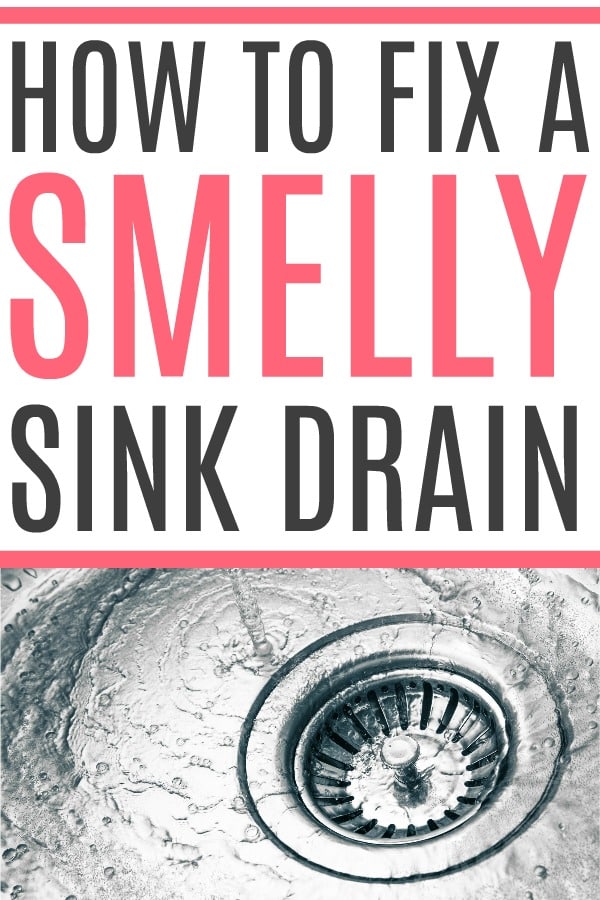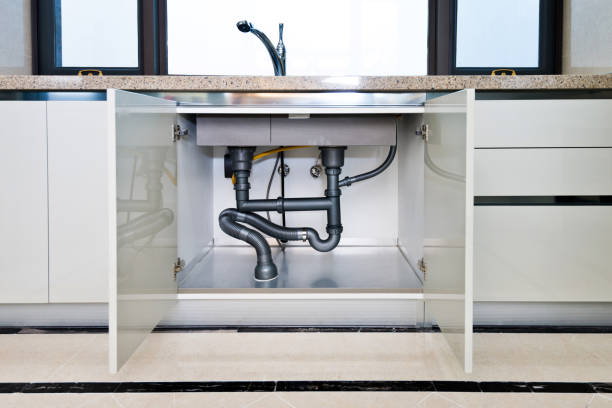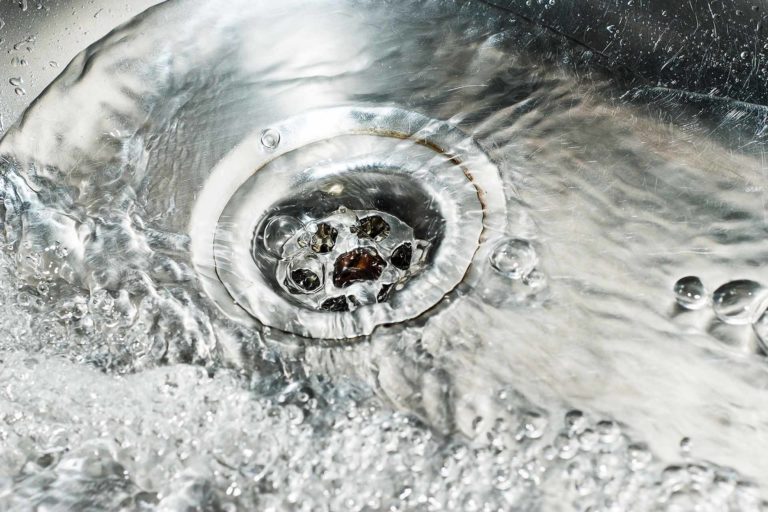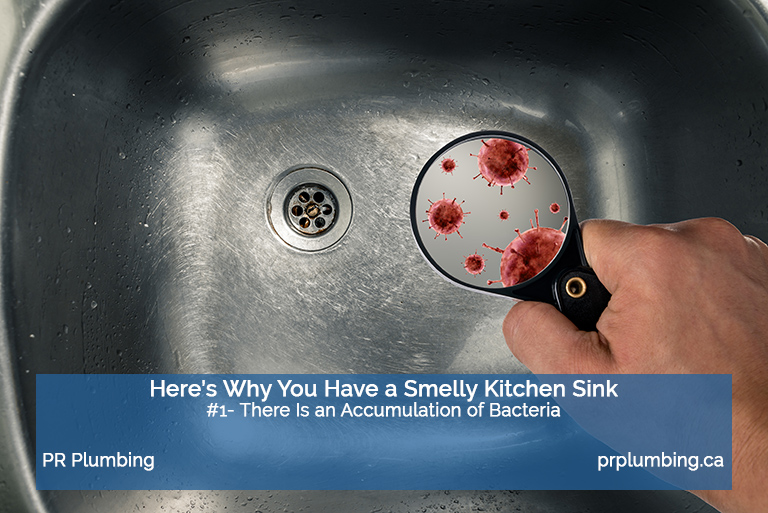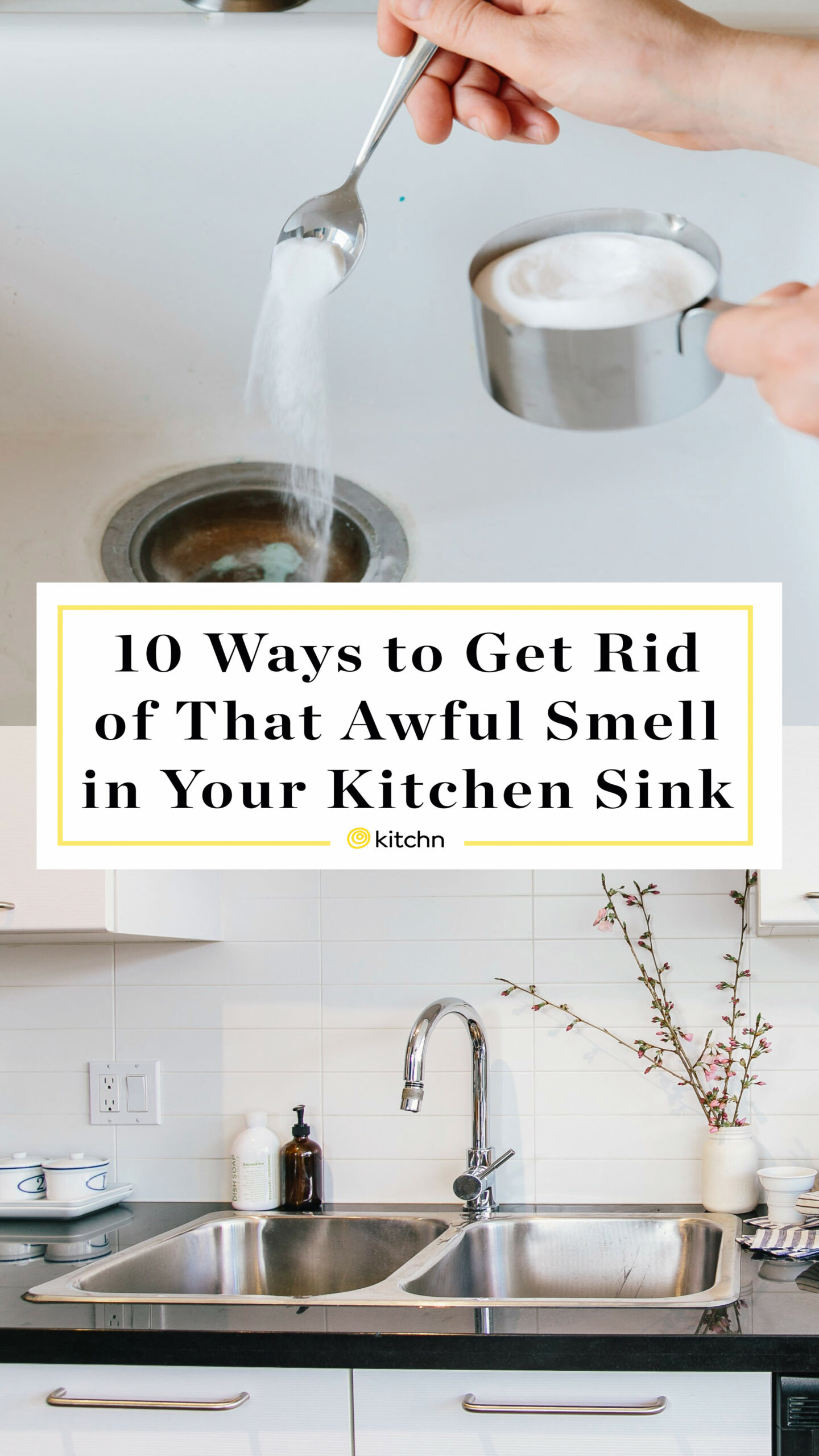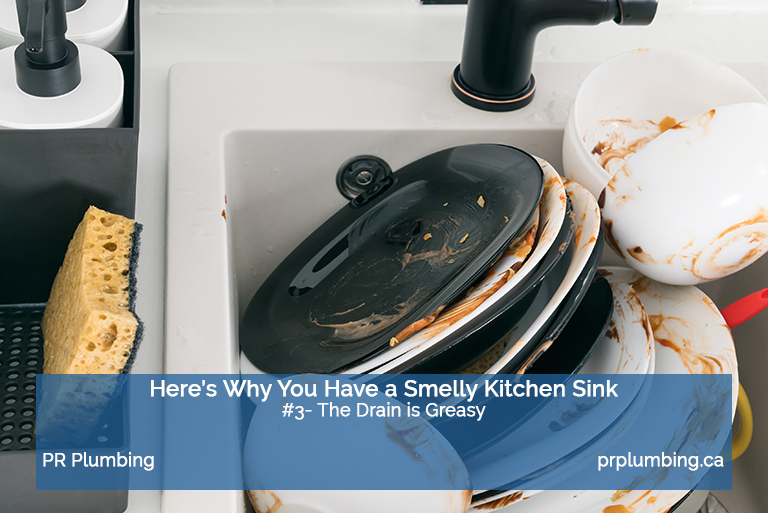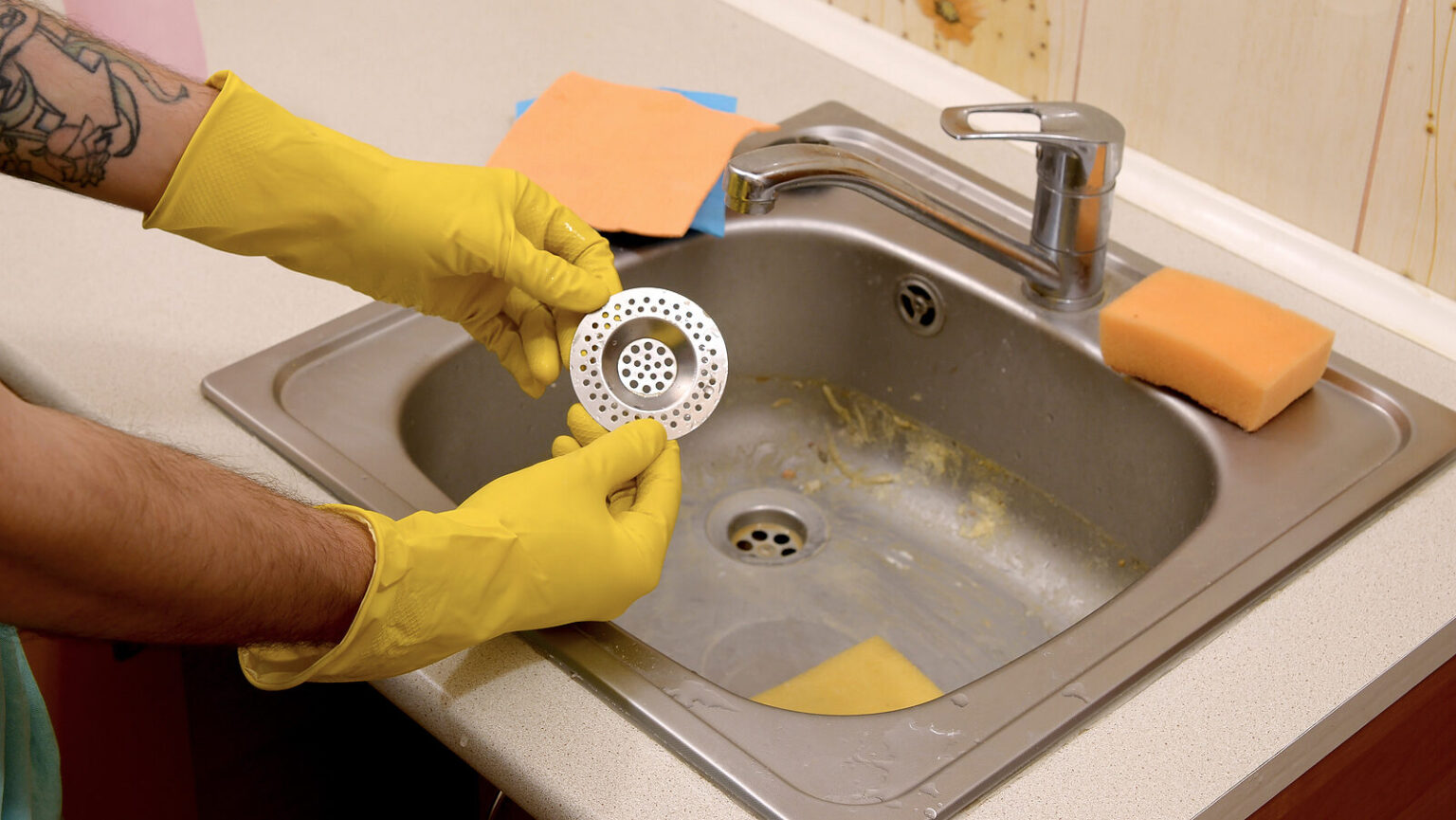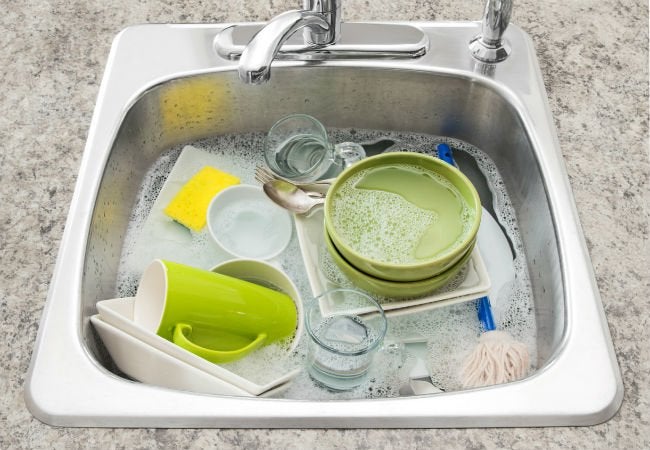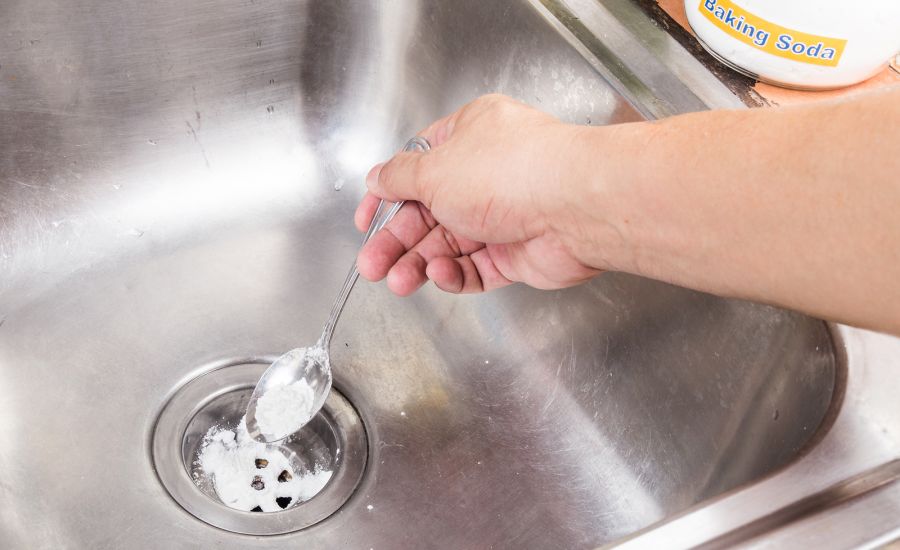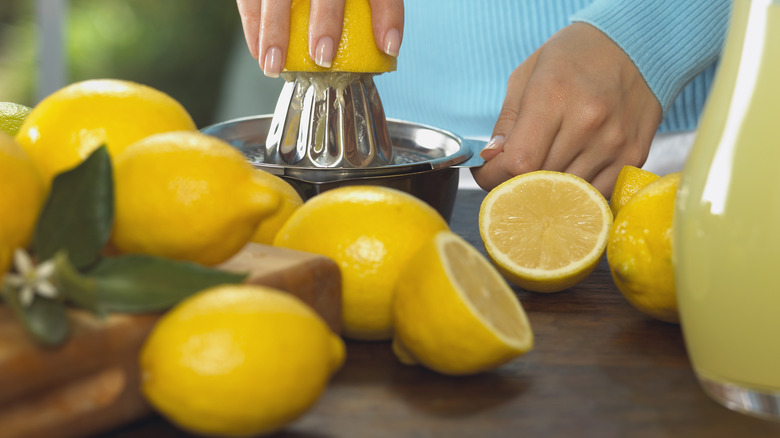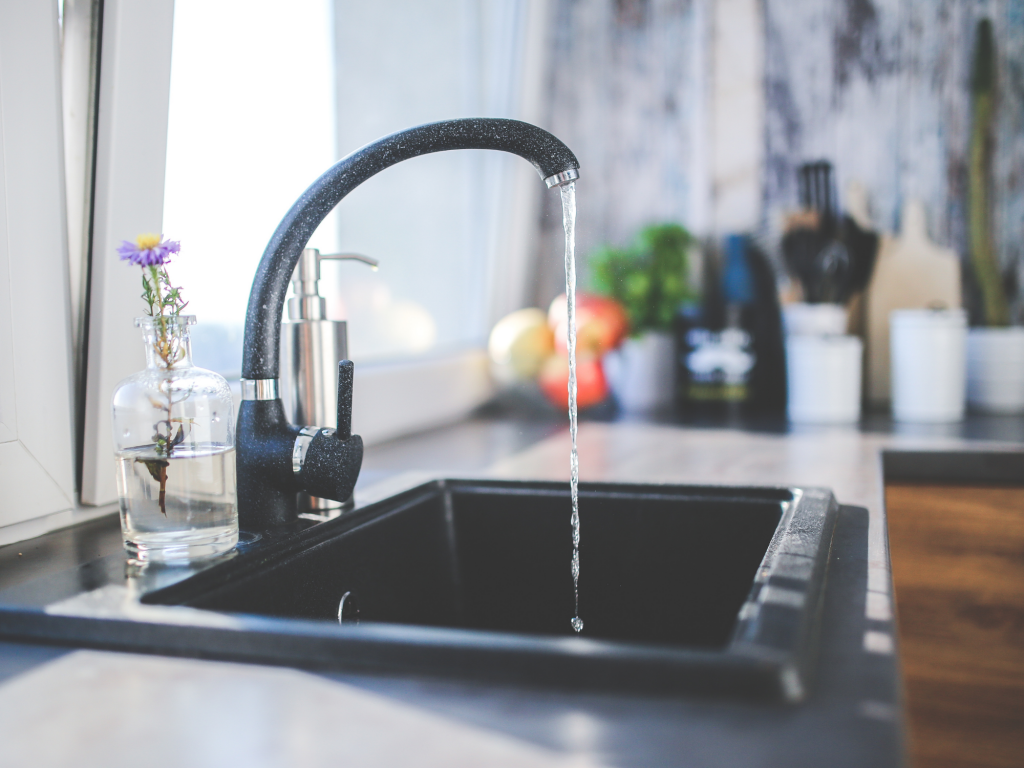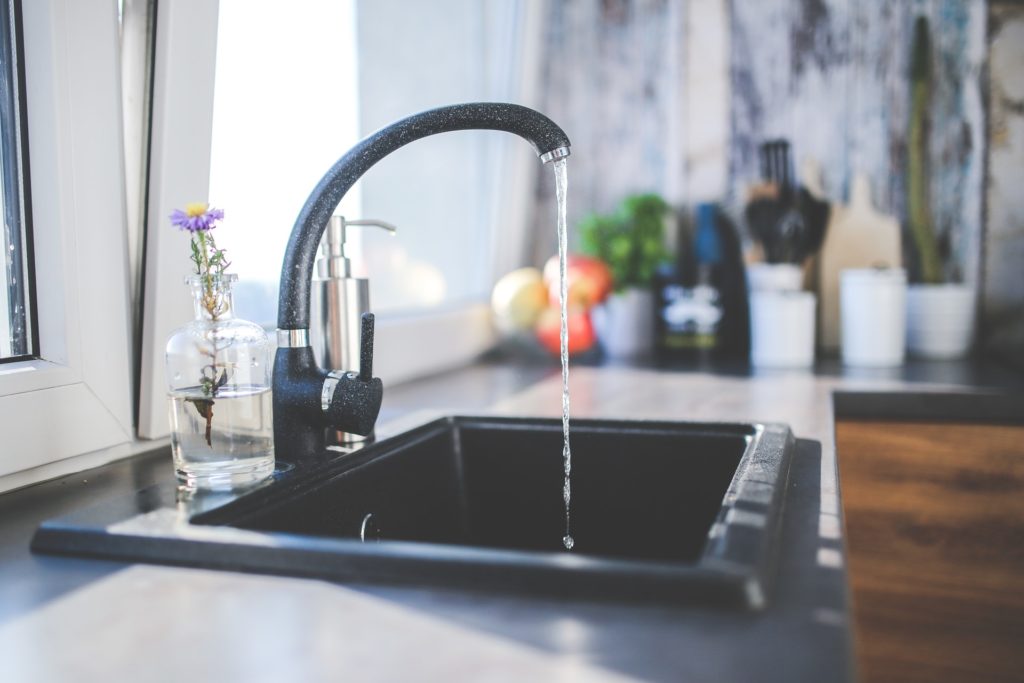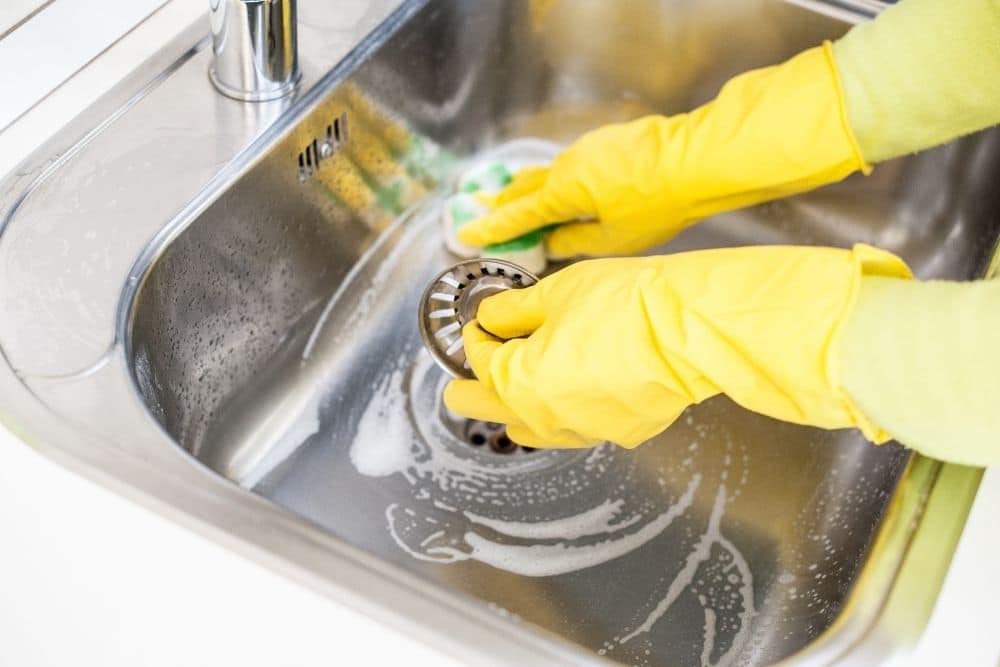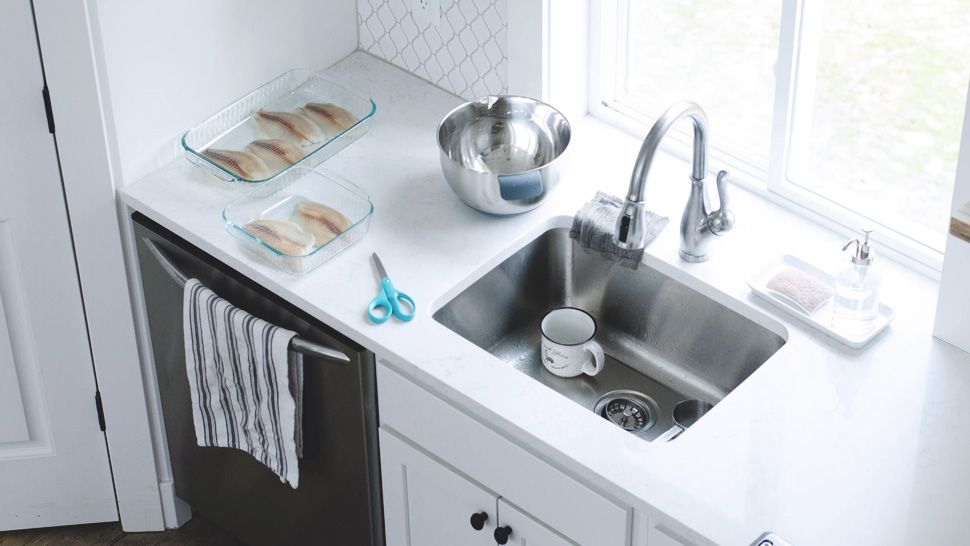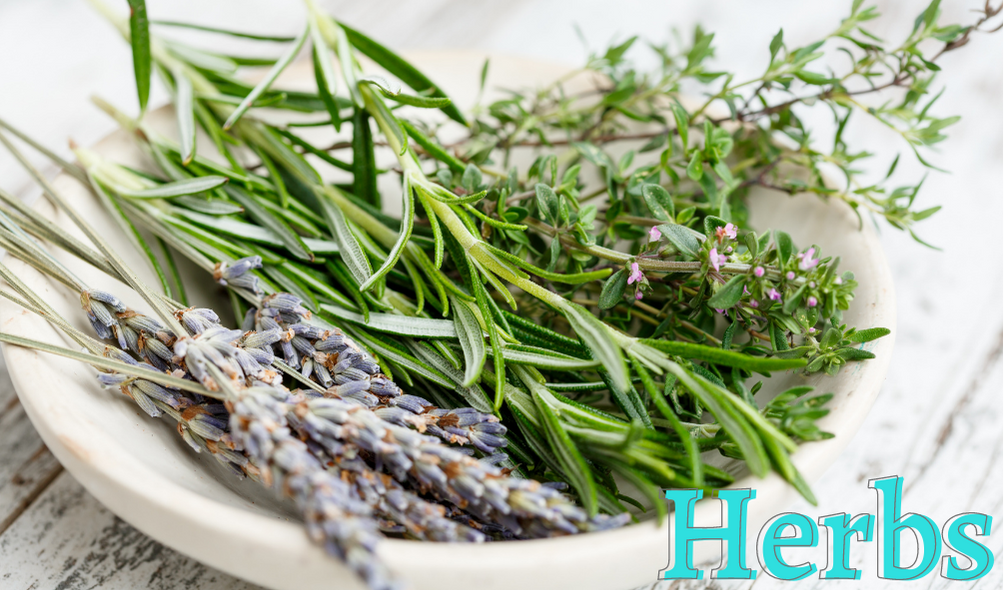1. Causes of a Smelly Kitchen Sink
There is nothing worse than walking into your kitchen and being hit with a foul odor coming from your sink. Not only is it unpleasant, but it can also be embarrassing if you have guests over. But before you panic and call a plumber, it's important to understand the common causes of a smelly kitchen sink.
One of the main culprits is food particles and debris that get stuck in your drain. Over time, these particles can build up and start to rot, producing a strong odor. Another cause could be the accumulation of grease and oil in your pipes, which can also lead to a foul smell.
Additionally, bacteria and mold can grow in the moist environment of your sink, causing a musty smell. These are just a few of the reasons why your kitchen sink may be emitting an unpleasant odor.
2. How to Get Rid of a Smelly Kitchen Sink
Now that you know what could be causing the odor, it's time to tackle the problem and get rid of that stench. The first step is to thoroughly clean your sink and drain. Use a mixture of baking soda and vinegar to scrub away any food particles and debris. You can also pour boiling water down the drain to help clear out any buildup.
For tougher smells, you may need to use a commercial drain cleaner or a mixture of bleach and water. Just be sure to follow the instructions carefully and use caution when handling these products.
After cleaning your sink, you can also try using a deodorizing agent such as lemon or orange peels, which can leave a pleasant scent behind. If the smell persists, it may be a sign of a more serious issue that requires professional help.
3. Natural Remedies for a Smelly Kitchen Sink
If you prefer to use natural remedies, there are several options that can help eliminate the odor from your kitchen sink. One popular method is using a combination of baking soda and lemon juice. Simply sprinkle baking soda down the drain and then pour lemon juice over it. Let it sit for a few minutes before flushing it out with hot water.
You can also try using white vinegar and essential oils to deodorize your sink. Mix equal parts of vinegar and water and add a few drops of your favorite essential oil. Pour the mixture down the drain and let it sit for 30 minutes before flushing it with hot water.
Another natural remedy is using coffee grounds. The coarse texture of the grounds can help scrub away any buildup in your pipes while also leaving a pleasant coffee scent behind.
4. Common Household Items That Can Help with a Smelly Kitchen Sink
You don't have to look far to find solutions for a smelly kitchen sink. In fact, you may already have some of the items in your pantry or fridge. For example, lemon juice, baking soda, and white vinegar are all common household items that can be used to eliminate odors from your sink.
You can also try using table salt to help scrub away any buildup in your drain. Simply pour a generous amount of salt down the drain and let it sit for a few minutes before flushing it with hot water.
Another surprising household item that can help with a smelly sink is mouthwash. The alcohol in mouthwash can kill bacteria and leave a fresh scent behind. Just pour a small amount down the drain and let it sit for a few minutes before flushing it out.
5. Professional Solutions for a Smelly Kitchen Sink
If the odor coming from your kitchen sink doesn't go away after trying various home remedies, it may be time to call in the professionals. A plumber can inspect your pipes and determine if there is a more serious issue causing the smell.
They may use a hydro jetting technique to clean out your pipes and remove any buildup that could be causing the odor. In some cases, they may also need to replace certain parts of your plumbing system to fully eliminate the smell.
While it may be more costly to hire a professional, it can save you from dealing with persistent odors and potential plumbing issues in the future.
6. How to Prevent a Smelly Kitchen Sink
As the saying goes, prevention is better than cure. To avoid dealing with a smelly kitchen sink in the future, there are several steps you can take to prevent the odor from occurring.
Firstly, be mindful of what you pour down your drain. Avoid pouring grease, oil, or food scraps down the sink, as these can lead to buildup and unpleasant smells. Instead, dispose of these items in the trash or compost.
Regularly cleaning your sink and drain can also help prevent odors. You can also pour boiling water down the drain once a week to help clear out any buildup.
Lastly, make sure to run your garbage disposal regularly and keep it clean to prevent food particles from accumulating and causing a stench.
7. Signs of a More Serious Issue with a Smelly Kitchen Sink
While most smelly kitchen sinks can be solved with a good cleaning, there are some cases where the odor could be a sign of a more serious issue. If you notice any of the following signs, it's best to call a plumber for professional help:
8. DIY Cleaning Tips for a Smelly Kitchen Sink
As mentioned earlier, regular cleaning is key to preventing smelly kitchen sinks. Here are a few DIY cleaning tips to keep your sink smelling fresh:
9. How to Clean and Maintain Your Kitchen Sink to Avoid Odors
Aside from regular cleaning, there are a few things you can do to maintain your kitchen sink and prevent odors from occurring:
10. Common Mistakes That Can Lead to a Smelly Kitchen Sink
Sometimes, we may unknowingly be contributing to the smelly sink in our kitchen. Here are some common mistakes to avoid:
How to Eliminate Foul Odors Coming From Your Kitchen Sink

The Kitchen Sink Smell: A Common Household Problem
 Kitchen sinks
are an essential part of any
house design
. They provide a convenient place for washing dishes, preparing food, and disposing of waste. However, when a
horrible smell
emanates from the kitchen sink, it can quickly become a nuisance and disrupt the entire household.
Kitchen sinks
are an essential part of any
house design
. They provide a convenient place for washing dishes, preparing food, and disposing of waste. However, when a
horrible smell
emanates from the kitchen sink, it can quickly become a nuisance and disrupt the entire household.
The Culprits Behind the Unpleasant Odor
 The first step in
eliminating the foul smell
coming from your kitchen sink is to understand what is causing it. The most common culprit is
food debris
that gets stuck in the
garbage disposal
or
drain pipes
. Bacteria thrive on these food particles and produce a
sulfuric gas
, which is responsible for the unpleasant odor.
Another cause of a smelly kitchen sink is
grease and oil
buildup. These substances can solidify and create blockages in the pipes, causing a backup of
foul-smelling water
in the sink.
The first step in
eliminating the foul smell
coming from your kitchen sink is to understand what is causing it. The most common culprit is
food debris
that gets stuck in the
garbage disposal
or
drain pipes
. Bacteria thrive on these food particles and produce a
sulfuric gas
, which is responsible for the unpleasant odor.
Another cause of a smelly kitchen sink is
grease and oil
buildup. These substances can solidify and create blockages in the pipes, causing a backup of
foul-smelling water
in the sink.
Effective Ways to Get Rid of the Smell
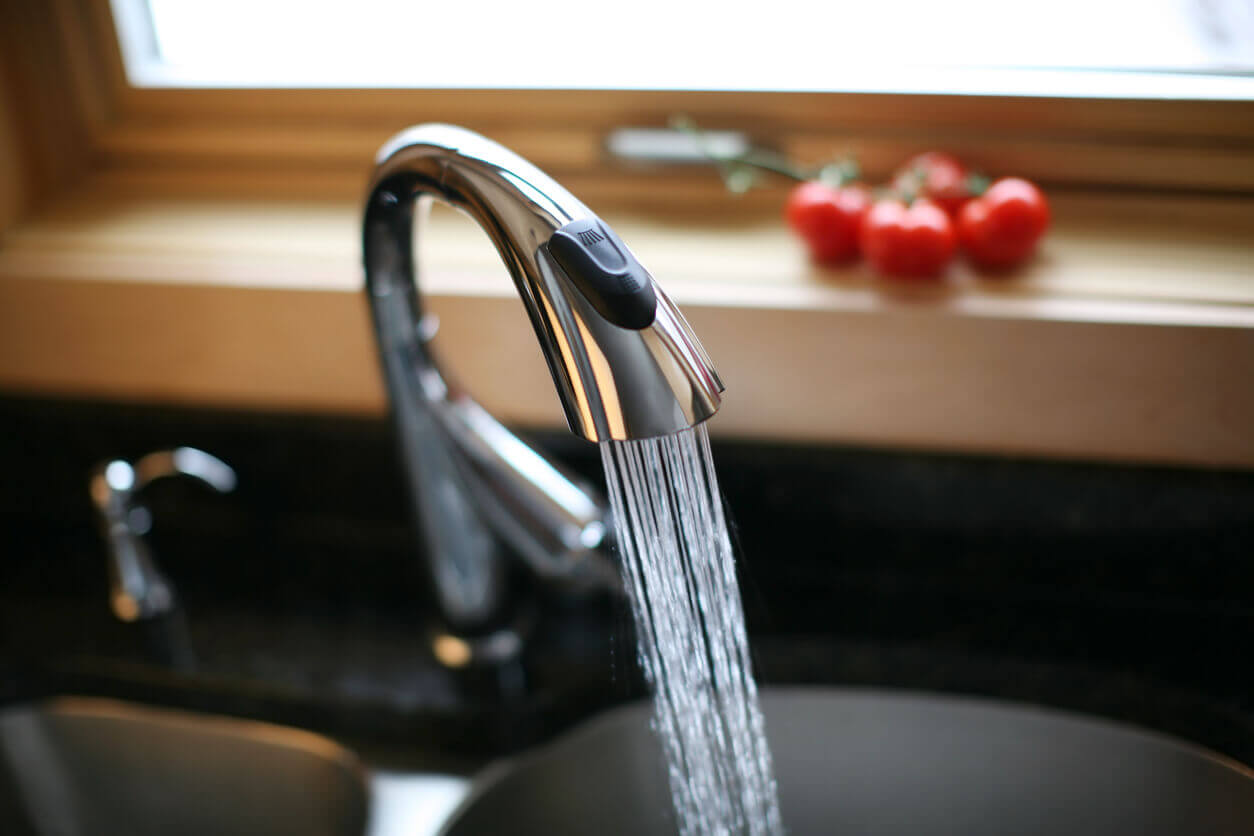 Thankfully, there are several
simple and effective
ways to get rid of the unpleasant smell coming from your kitchen sink. The first step is to
flush the drain
with hot water for a few minutes to dislodge any food particles or grease buildup. You can also use a
plunger
to remove any clogs in the pipes.
To get rid of any lingering odors, you can create a mixture of
hot water and baking soda
and pour it down the drain. This will help break down any leftover food particles and neutralize the smell. Alternatively, you can use a
commercial drain cleaner
specifically designed for kitchen sinks.
Thankfully, there are several
simple and effective
ways to get rid of the unpleasant smell coming from your kitchen sink. The first step is to
flush the drain
with hot water for a few minutes to dislodge any food particles or grease buildup. You can also use a
plunger
to remove any clogs in the pipes.
To get rid of any lingering odors, you can create a mixture of
hot water and baking soda
and pour it down the drain. This will help break down any leftover food particles and neutralize the smell. Alternatively, you can use a
commercial drain cleaner
specifically designed for kitchen sinks.
Preventing Future Smells
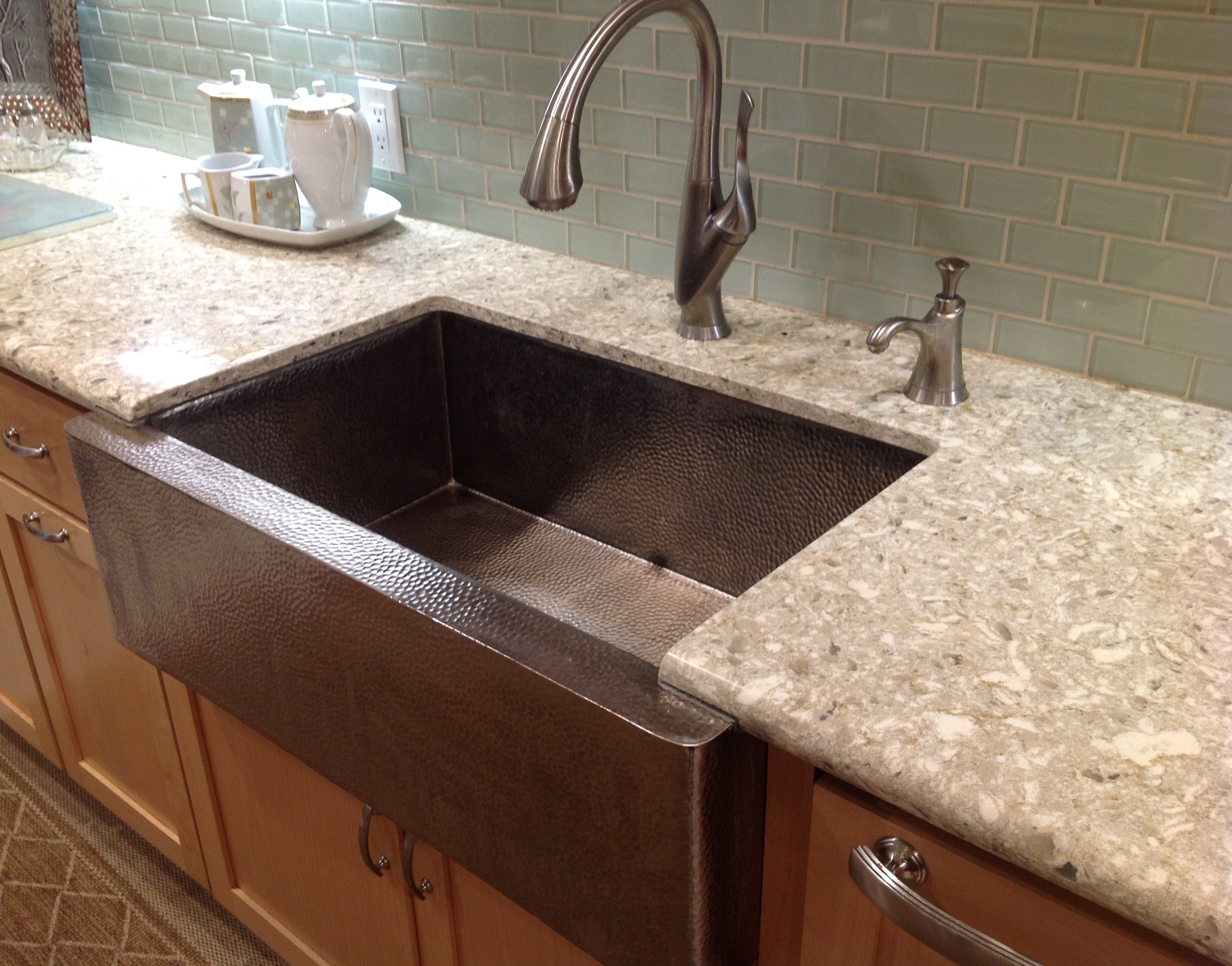 To prevent the
kitchen sink smell
from returning, it is important to practice
good maintenance
habits. This includes regularly
cleaning
the sink and
garbage disposal
with a mixture of hot water and dish soap. You can also pour a cup of
white vinegar
down the drain once a week to keep it clean and fresh.
Additionally, avoid pouring
grease or oil
down the sink and
use a sink strainer
to catch any food particles before they can go down the drain.
To prevent the
kitchen sink smell
from returning, it is important to practice
good maintenance
habits. This includes regularly
cleaning
the sink and
garbage disposal
with a mixture of hot water and dish soap. You can also pour a cup of
white vinegar
down the drain once a week to keep it clean and fresh.
Additionally, avoid pouring
grease or oil
down the sink and
use a sink strainer
to catch any food particles before they can go down the drain.
Final Thoughts
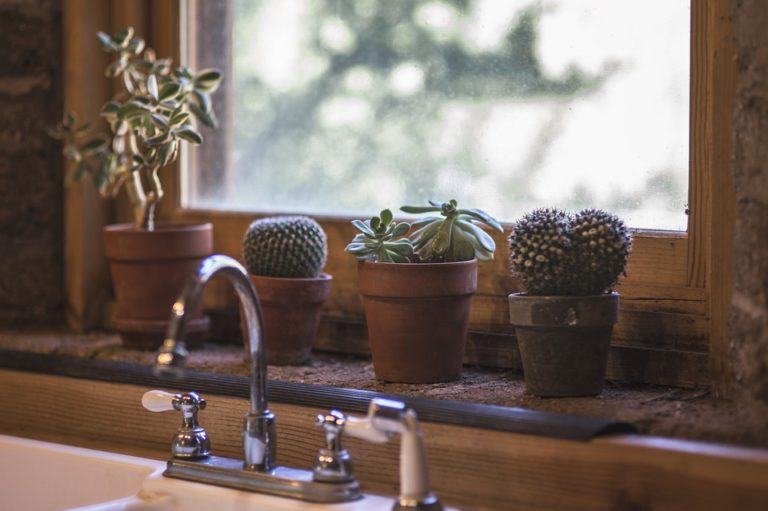 Don't let a
smelly kitchen sink
ruin your
house design
and disrupt your daily routine. With these simple and effective tips, you can eliminate the foul odor and keep your kitchen smelling fresh and clean. Remember to
regularly maintain
your sink and
practice good habits
to prevent future smells from occurring.
Don't let a
smelly kitchen sink
ruin your
house design
and disrupt your daily routine. With these simple and effective tips, you can eliminate the foul odor and keep your kitchen smelling fresh and clean. Remember to
regularly maintain
your sink and
practice good habits
to prevent future smells from occurring.


